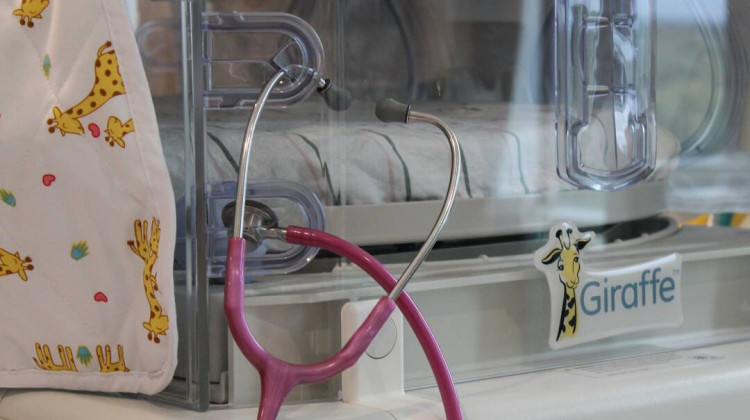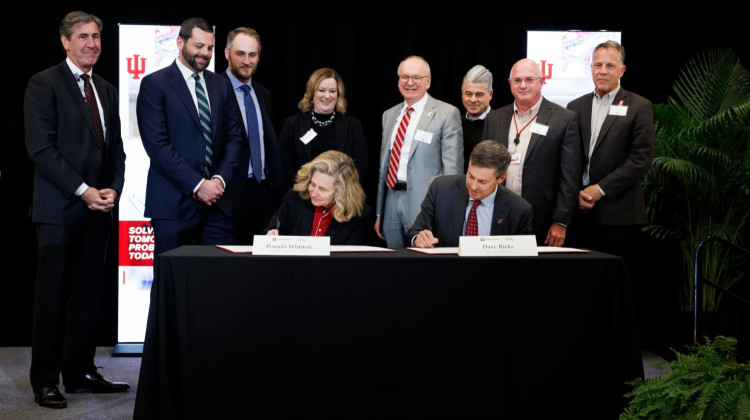
Demonstration of concentration gradient in microfluidic system using red and blue color dye solutions.
Purdue UniversityA new device developed at Purdue aims to more easily identify breast cancer risk factors. The so-called “risk-on-a-chip” that could help researchers figure out how cancer starts.
The chip is a plastic nano-tool that allows researchers to create a tiny controlled environment where they can study factors that play into the development of breast cancer.
Purdue cancer pharmacology professor Sophie Lelievre says her theory is that an increase in cancer cases is related to the environment.
“It can be food, it can be pollution, it can be stress, but there is definitely something happening,” Lelievre says, “We need to try and stop it before.”
Small samples of health breast tissue from the Komen Tissue Bank at the IU Simon Cancer Center will be used for the experiments. The ultimate goal is to prevent cancer by identifying individual risk factors in a person’s genes.
“So we would have that specific background of that person, the specific gene organization that we could study,” she says.
Lelievre says the study of cancer needs to be individualized.
“Because cancer is a disease of genes – genes that are shut off when they should be on or genes that are active when they should be off,” she says.
Lelievre says she’s been able to work with engineers at Purdue to develop the so-called 3D cell culture devices.
 DONATE
DONATE









 Support WFYI. We can't do it without you.
Support WFYI. We can't do it without you.